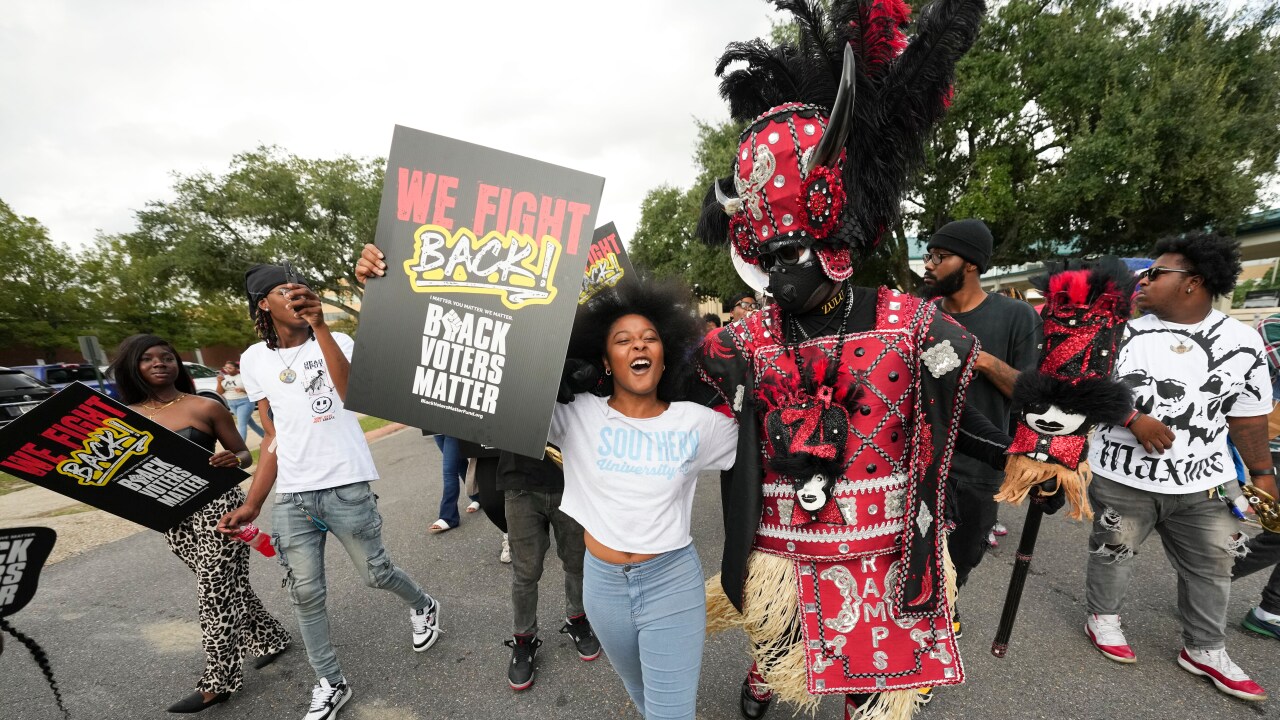The Supreme Court on Wednesday is hearing a case that legal experts say could upend the Voting Rights Act and the role race plays in drawing congressional maps.
The case is out of Louisiana, but the impacts could be felt across the country.
WHAT THE CASE IS ABOUT
Should race play a role in the drawing of congressional maps?
It is one of the central questions before the Supreme Court on Wednesday, and the outcome could overturn parts of the landmark Voting Rights Act.
RELATED STORY | Is the Voting Rights Act at risk?
Officially, the case is called Louisiana v. Callais. It stems from Louisiana’s recent redistricting process.
In 2022, lawmakers drew a congressional map with one Black-majority district. That prompted a lawsuit and accusations that Louisiana violated the Voting Rights Act, since about one-third of Louisiana voters are Black and the state has six seats in the U.S. House of Representatives.
In 2024, the courts forced Louisiana to redraw the map, creating a second Black-majority district.
However, another lawsuit emerged — this time from self-described “non-African American” voters who say race should not play such a significant role.
SECTION TWO OF THE VOTING RIGHTS ACT
At the core of this latest Supreme Court case is Section 2 of the Voting Rights Act and whether it is constitutional.
For decades, Section 2 has been viewed as legal and generally interpreted as requiring states with large minority populations to draw districts that reflect their voting power. But do the justices who sit on the Supreme Court in 2025 agree with that?
RELATED STORY | Justice Department seeks voter and election information from at least 19 states, AP finds
Louisiana Attorney General Liz Murrill, a Republican, said this in a statement earlier this year: “Our Constitution sees neither black voters nor white voters; it sees only American voters.”
But others disagree.
In a brief submitted by the ACLU, the NAACP Legal Defense Fund and others, it says: “Although we are making progress towards the goal of an America where race is no longer relevant to opportunity, racial discrimination and racially polarized voting are not ancient history.”
HISTORY OF RACE AND ELECTIONS
The country’s history is an important part of this case.
President Lyndon Johnson signed the Voting Rights Act in the 1960s while Martin Luther King Jr. and other civil rights leaders marched against the disenfranchisement of Black voters.
If the Supreme Court decides in the coming months to strike down parts of the Voting Rights Act, it could force the redrawing of maps in several states, especially in the South, potentially impacting control of Congress in future years.




